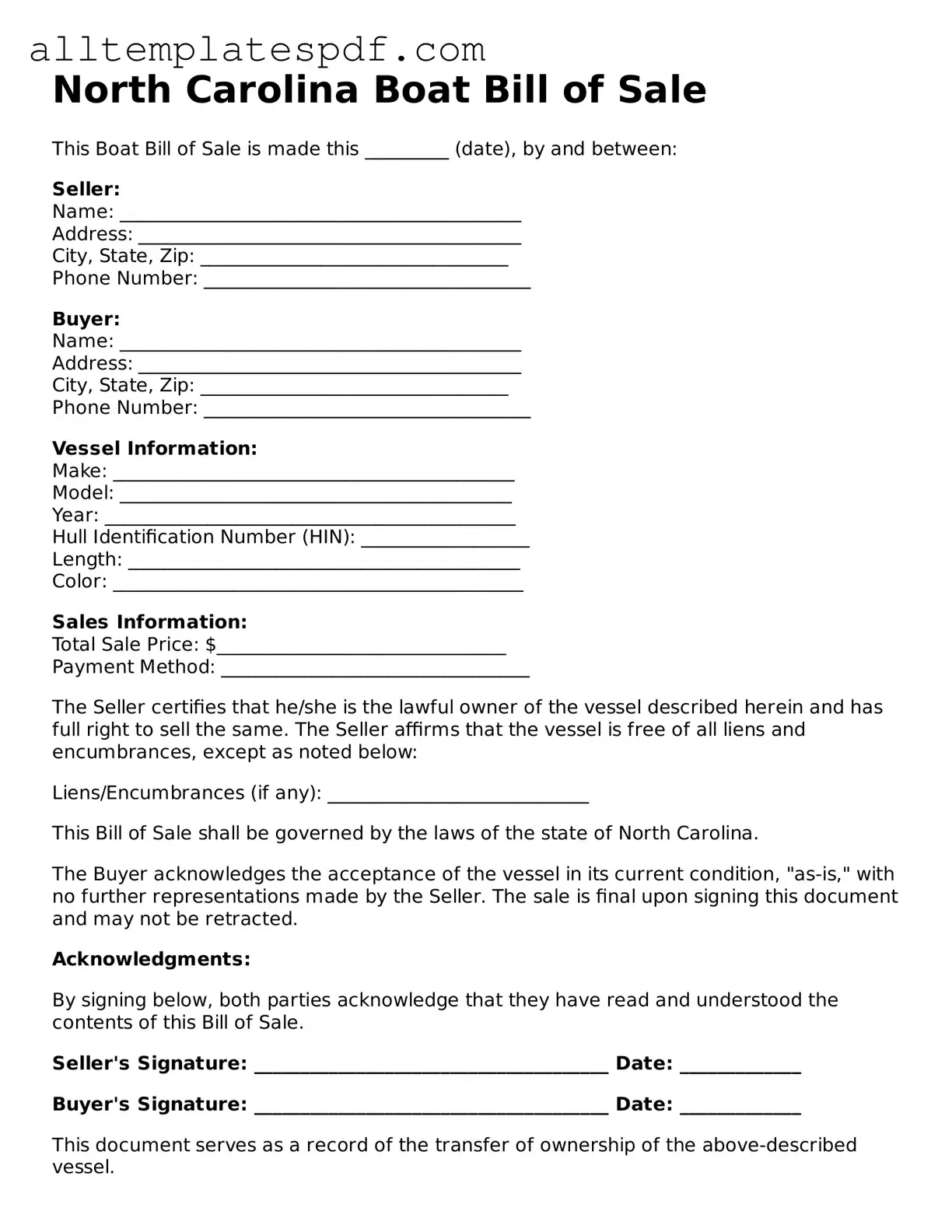When filling out the North Carolina Boat Bill of Sale form, many individuals make common mistakes that can lead to complications down the line. One significant error is failing to include all required information. The form demands specific details about the buyer, seller, and the boat itself. Omitting any of this information can render the document invalid.
Another frequent mistake is incorrect identification of the boat. The hull identification number (HIN) must be accurate. If the number is wrong or illegible, it can create issues during registration. Double-checking this information is essential to avoid future problems.
People often neglect to sign the form. Both the seller and the buyer must provide their signatures for the document to be legally binding. Without these signatures, the transaction may not hold up in court or with the DMV.
Additionally, many fail to date the form. A date is crucial for establishing when the sale took place. This can affect liability and ownership issues later on. Always ensure that the date is clearly marked.
Another common oversight is not providing a complete description of the boat. Details such as the make, model, year, and condition should be included. A vague description can lead to disputes regarding the sale.
People sometimes forget to include the sale price. This figure is important for both tax purposes and establishing the value of the transaction. Leaving it blank can cause confusion and complications with the state.
Some individuals also fail to understand the importance of keeping a copy of the completed form. After signing, both parties should retain a copy for their records. This can serve as proof of the transaction if any issues arise later.
Another mistake involves not understanding the implications of the sale. Buyers should be aware of any liens or encumbrances on the boat. Sellers must disclose any known issues. Failure to do so can lead to legal repercussions.
Finally, people often overlook the importance of notarization. While not always required, having the form notarized can add an extra layer of security to the transaction. It can help verify the identities of the parties involved and protect against fraud.

